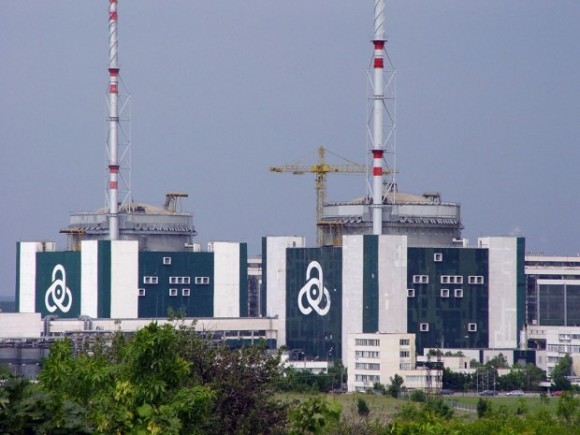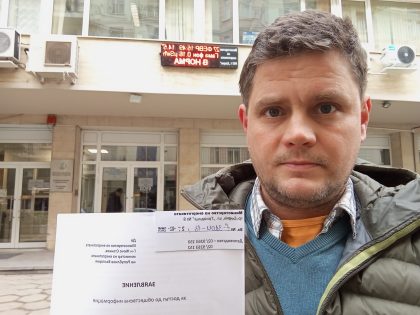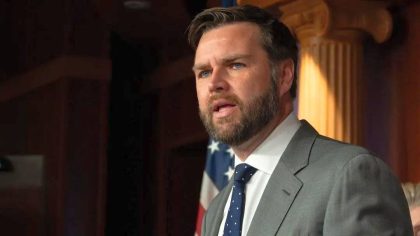November 2, 2011
Today, 2.11.2011, Eng. Petar Penchev, a member of the Public Board of the Anna Politkovskaya Free Speech Association, holder of the Golden Dove award for human rights, submitted a supplement to the Supreme Cassation Prosecutor’s Office with respect to an alert under case № 10476/2008, under which an inspection by the Appeal Prosecutor’s Office in Sofia was renewed one month ago. The supplement drew attention to the fact that a further employee at the Kozloduy nuclear power plant has confirmed cases of fraud revealed three years ago by physicist Georgi Kotev in connection with nuclear fuel introduced into the plant since 2004.
Following the online publication by G. Kotev of a document entitled „Technical Solution“concerning the new fuel, on 19.08.2011, in a written explanation to the then Executive Director of the Kozloduy Nuclear Power Plant Kostadin Dimitrov, the Chief Expert at the Power Plant Кrasimir Filipov reported the reason why he printed the same document, thus giving rise to an internal investigation. The management of the power station fails to take into account the admission by the expert that he took an interest in the document because he was highly concerned about the tenfold increase in background radiation from 20 to 200 milliroentgens per hour in the CK2 room with contaminated radioactive boric acid in circulation, which he observed in the course of routine measurements since the beginning of the process of changing the nuclear fuel.
„After conducting checks and consulting specialists I reached the conclusion that the fuel indicated as having been used for the change from TBC to TBCA type fuel at the Kalinin nuclear power plant is not the same as the fuel used in the Kozloduy nuclear power plant. This contradicts items 1.4.and 2.3.2.of the Technical Solution. I believe that the assertion in the Technical Solution that experience is available in the use of this type of fuel is false“. These were the concluding words of the explanation by this chemical engineer with 37 years of experience at the Kozloduy nuclear power plant, who was dismissed on disciplinary grounds a few months before retiring.
In the dismissal order № НК-14dated 12.10.2011, the newly-appointed executive director Alexander Nikolov (who signed the Technical Solution as „approved“, along with the other new member of the Board of Directors, Mitko Yankov), was the first to make an official acknowledgement of the identity of the document published online by Georgi Kotev as the same as the one in the Information System Database entitled „Project Amendments“, a company document related to the nuclear fuel cassettes. This amounts to evidence that Kotev’s scandalous revelations are based on real documents.
Following his dismissal, on 28.10.2011 Krasimir Filipov wrote a letter to Traycho Traykov, Minister of the Economy, Energy and Tourism, again reporting that: „In the course of the inspection I came across the technical solution for the change of fuel in reactor blocks 5 and 6 by chance. I printed it in order to check more precisely whether G. Kotev’s assertions were true. I consulted colleagues to ensure precision in the course of the inspection. At about the same time, G. Kotev’s information about the technical solution appeared online“, and adding that „… on 17.10.2011 I received a disciplinary dismissal order on the grounds that I used a colleague’s computer and printed the technical solution. I did not present this document to G. Kotev, I did not publish it and until 21.10.2011 I did not publish any comments about it on the Internet.“ In the same letter to the Minister, Eng. Krasimir Filipov adds: „During a voice interview on 21.10.2011 for the EuroChicago web portal https://www.eurochicago.com/wp-content/uploads/2011/10/ANikolov01.mp3, the Executive Director of the Kozloduy Nuclear Power Plant was the first official to declare publicly that the „technical solution“ published by G. Kotev corresponds to the official document.
Eng. Filipov’s letter to the Minister ends with a question about the lack of updated documentation: „… since the Nuclear Regulatory Agency has not approved the Evidence of the Technical Safety (ETS) of the new fuel; since it was not accompanied by updated constants for fuel campaign estimation; and since the nuclear power plant has no Expert Technical-Economic Council to approve the ETS ( which is compulsory in such cases); does this not mean that the persons who drafted, approved and endorsed this technical solution have infringed a number of quality instructions, including those related to nuclear safety? Does this not amount to the drafting of a document giving false grounds for the change of fuel and that following its implementation the Republic of Bulgaria has taken an unacceptable risk under the Vienna Convention?“
New evidence in connection with the unregulated change of fuel emerged in a voice interview by Georgi Kaschiev on 21.10.2011 for EuroChicago. During this interview, the best-known Bulgarian nuclear expert once again confirmed that „there was a real problem with the new fuel, as Kotev disclosed“, adding that „Kotev’s main assertion was that there was a discrepancy between the type of fuel indicated in the safety documentation and the fuel actually supplied to the power station. Everybody avoids this issue like the plague“. Rejecting Alexander Nikolov’s claim on the same day on this online Bulgarian media outlet in the USA that official European authorities issued a pronouncement on this issue and that according to Nikolov this was the end of the story, Georgi Kaschiev countered: „There was no pronouncement whatsoever by any international authorities and the commission which was convened comprised people who are not independent“. This refers to a special commission appointed by order of Minister Traycho Traykov on 17.01.2011, in which Kaschiev issued a written refusal to participate due to the evidence that its other members were in relations of dependence on the Kozloduy nuclear power plant, the object of the inquiry.
In the same interview, Kaschiev indicated the guilty parties: „Interested parties from the power plant and the regulatory authority (the Chairman of the Nuclear Regulatory Agency) were unable to assess the way in which the fuel is used and … without such an instrument, you have no right to introduce …“. The words of the same expert in Vienna give grounds for concern: „If there is no way to assess the fuel, this amounts to a reckless operation and the Russians have used us as a test platform“.
In support of the data about the false content of the Technical Solution drafted by the Kozloduy nuclear power plant, revealed in the alert dated 24.08.2001 concerning the new nuclear fuel and bearing in mind the new evidence set out in Supreme Prosecution Case № 10476/2008, the Public Council of the Anna Politkovskaya Free Speech Association is calling for written explanations to be recorded from experts Georgi Kotev, Krasimir Filipov and Georgi Kaschiev, along with Alexander Nikolov, for written confirmation of his verbal admission at www.Eurochicago.com.
„On the basis of clear evidence, we as citizens and upholders of human rights call on you to file pre-judicial proceedings with the involvement as an expert of nuclear physicist Georgi Kotev, who has 17 years of experience in the Kozloduy nuclear power plant as chief expert in reactor physics analyses (who holds up-to-day documents on the case which he revealed), concludes the supplement to the inspection by the Prosecutor’s Office which was extended one month ago.
Eurochicago.com calls on media and journalists in Bulgaria wishing to engage in journalistic investigation not to overlook this case. Since it involves not only the dismissal of highly-experienced experts at the Kozloduy nuclear power plant, but also issues which give serious grounds for concern in connection with its operation and with nuclear safety in Bulgaria. As a media outlet based outside the country, we have few opportunities to do this and isolated media reports are frequently not sufficient to inform the public and to provoke adequate reactions on the part of the competent institutions.
Our editorial office is prepared to provide all materials collected so far for possible publication in the future.
The original letter to the Cassation Prosecutor’s Office can be downloaded here:







